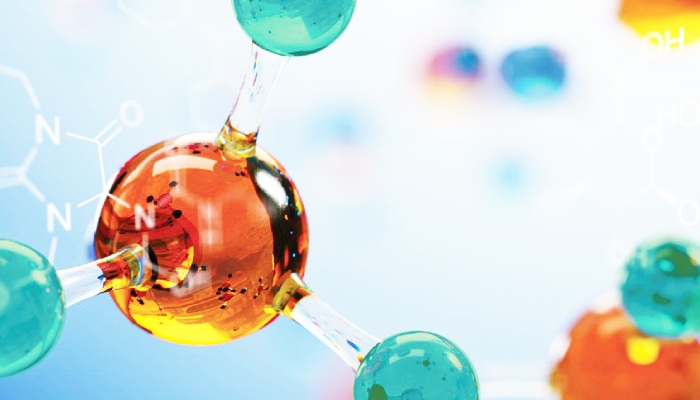The Essential Skills and Qualifications of a Professional Chemist
In today’s competitive job market, the role of a professional chemist is more critical than ever. Chemists are the backbone of the chemical industry, applying their deep understanding of chemical principles to develop new products, improve processes, and advance scientific knowledge. But what is a chemist, and what does it take to excel in this demanding field? Beyond an affinity for experimentation and a passion for discovery, a professional chemist must possess a diverse set of skills and qualifications. These range from robust mathematical skills to the ability to analyze complex research findings.
In this article, we will explore the essential educational background, technical proficiencies, analytical capabilities, and professional attributes that define a successful chemist in the modern scientific landscape.

Educational Background and Certifications
A solid educational foundation is paramount for anyone aspiring to become a professional chemist. Typically, this begins with a bachelor’s degree in chemistry or a related field, where students gain a comprehensive understanding of chemical principles and laboratory techniques. During this period, coursework often includes general, organic, and inorganic chemistry, along with physics and advanced mathematics, which are essential for developing strong analytical skills.
In addition to classroom learning, hands-on experience through laboratory courses and research projects is crucial. These experiences allow students to apply theoretical knowledge to practical situations, honing their laboratory techniques and fostering critical thinking abilities. For those interested in specialized fields, such as pharmaceuticals and medication development, coursework might include biochemistry and pharmacology.
Advancing beyond a bachelor’s degree can significantly enhance a chemist’s qualifications. Pursuing a master’s degree or Ph.D. provides deeper knowledge and more extensive research opportunities. Graduate programs often involve working on complex research projects, which require meticulous attention to detail and advanced problem-solving skills. Such projects not only build expertise but also contribute to the chemist’s ability to perform quality control and ensure the reliability of their results.
Certifications can further bolster a chemist’s credentials. Professional certifications, such as those offered by the American Chemical Society (ACS) or the Royal Society of Chemistry (RSC), validate a chemist’s expertise and commitment to the field. These certifications often require passing rigorous exams and demonstrating proficiency in various aspects of chemistry, including analytical techniques, laboratory safety, and quality control.
Overall, a robust educational background, combined with practical experience and professional certifications, lays the foundation for a successful career as a professional chemist.
Technical Skills and Laboratory Proficiency
A professional chemist must possess a solid foundation of technical skills and laboratory proficiency to effectively conduct experiments and contribute to scientific advancements. Mastery of the scientific method is crucial, as it underpins the approach to experimentation and problem-solving in the chemical sciences. Chemists rely on this method to design experiments, collect data, and draw valid conclusions, ensuring their research findings are accurate and reproducible.
Proficiency in laboratory techniques is another essential aspect of a chemist’s skill set. This includes the ability to operate sophisticated instruments, perform precise measurements, and follow standardized procedures. A thorough understanding of techniques such as chromatography, spectroscopy, and titration allows chemists to analyze substances accurately and identify their composition. These skills are vital for solving complex problems in various fields, from pharmaceuticals to environmental science.
In addition to traditional laboratory skills, knowledge of green chemistry principles is becoming increasingly important. Green chemistry focuses on designing products and processes that minimize environmental impact and reduce the use of hazardous substances. By integrating these principles, chemists can develop sustainable solutions that address global challenges such as pollution and resource depletion. This approach not only benefits the environment but also aligns with industry trends towards more sustainable practices.
Technical skills extend beyond the laboratory as well. Chemists often use advanced software for data analysis, molecular modeling, and chemical simulation. These tools help chemists visualize complex problems, predict outcomes, and optimize processes, making them indispensable in modern research and development. Familiarity with these digital tools enhances a chemist’s ability to solve problems efficiently and effectively.
Overall, technical skills and laboratory proficiency form the backbone of a professional chemist’s capabilities. By combining a solid foundation in the scientific method with expertise in laboratory techniques and a commitment to green chemistry, chemists are well-equipped to tackle the complex problems facing today’s world.

Analytical and Critical Thinking Abilities
Analytical and critical thinking abilities are at the core of a professional chemist’s skill set, enabling them to interpret data, solve complex problems, and innovate within the field. These skills are developed through rigorous academic training and hands-on experience with experiments involving various chemicals.
From their early days as graduates, chemists are trained to approach problems systematically and analytically. This training involves not only conducting experiments but also meticulously analyzing the results. Chemists must be able to assess the validity of their data, identify patterns, and draw meaningful conclusions. This level of critical analysis is essential for advancing research and ensuring the accuracy of findings.
The ability to think critically is also crucial when working with new technology. As the chemical industry evolves, chemists must stay abreast of the latest technological advancements and integrate them into their work. Whether it’s using advanced analytical instruments or employing cutting-edge software for data analysis, chemists need to adapt and apply technology to enhance their research capabilities. This technological proficiency allows them to perform more precise and efficient experiments, leading to better outcomes and innovations.
Teaching is another area where analytical and critical thinking skills are essential. Chemists who engage in teaching must be able to convey complex concepts clearly and effectively. This requires not only a deep understanding of the subject matter but also the ability to break down intricate topics into understandable segments. By fostering critical thinking skills in their students, chemists can prepare the next generation of scientists to tackle future challenges in the field.
Furthermore, chemists often work in quality control and regulatory environments where they must critically evaluate processes and products to ensure they meet stringent standards. This involves a thorough understanding of the chemicals and materials being used, as well as the ability to identify and rectify any deviations from the norm.
Communication and Collaboration Skills
Effective communication and collaboration are vital for professional chemists, whether they are working in industry, academia, or research institutions. These skills enable chemists to share their findings, collaborate on complex experiments, and contribute to multidisciplinary teams, often involving professionals from fields such as engineering and biology.
Chemists must be adept at both written and oral communication. Writing clear and concise research papers, reports, and grant proposals is essential for disseminating findings and securing funding for future projects. In universities and research institutions, chemists often publish their work in scientific journals, making it accessible to the broader scientific community. Effective communication ensures that their experiments and discoveries can be understood, replicated, and built upon by other researchers.
Oral communication skills are equally important. Chemists frequently present their research at conferences, seminars, and academic institutions. These presentations require the ability to explain complex concepts and data in an engaging and understandable manner. Strong oral communication skills also facilitate effective teaching, allowing chemists in universities to educate and inspire the next generation of scientists.
Collaboration is another critical aspect of a chemist’s role. Many scientific breakthroughs result from interdisciplinary teamwork. Chemists often work alongside engineers to develop new materials, pharmaceuticals, or industrial processes. Effective collaboration requires the ability to understand and integrate diverse perspectives and expertise. Chemists must be able to communicate their ideas clearly to colleagues from different backgrounds and be open to feedback and new approaches.
Teamwork in a laboratory setting is crucial for the successful execution of experiments. Chemists must work closely with lab technicians, research assistants, and fellow scientists to ensure that experiments are conducted accurately and safely. This collaborative effort helps in troubleshooting problems, sharing knowledge, and achieving common research goals.
Additionally, communication skills extend to interactions with regulatory bodies, industry partners, and the public. Chemists must be able to convey the significance of their work, its potential applications, and any associated risks. This is particularly important in fields such as pharmaceuticals and environmental science, where public health and safety are paramount.
In essence, strong communication and collaboration skills enable chemists to effectively share their knowledge, work productively in teams, and contribute to the advancement of science and engineering. These skills are as crucial as technical expertise in ensuring the success of their research and professional endeavors.

Continual Learning and Professional Development
In the ever-evolving field of chemistry, continual learning and professional development are essential for maintaining expertise and staying current with the latest advancements. A professional chemist must commit to lifelong education to keep pace with new discoveries, technologies, and methodologies that shape the industry.
Continual learning begins with formal education but extends far beyond obtaining degrees. Chemists must regularly update their knowledge through professional development opportunities such as workshops, seminars, and conferences. These events provide platforms for learning about the latest research, networking with peers, and gaining insights into emerging trends and technologies. Participating in these activities ensures that chemists remain at the forefront of their field and are well-equipped to conduct innovative experiments.
Engaging in further education and earning advanced degrees, such as a master’s or Ph.D., can also enhance a chemist’s expertise. These programs often involve specialized coursework and in-depth research projects, providing opportunities to delve deeper into specific areas of interest. This advanced education not only broadens a chemist’s knowledge base but also hones their research and analytical skills.
Professional certifications and memberships in scientific organizations are other vital aspects of continual learning. Certifications from bodies like the American Chemical Society (ACS) or the Royal Society of Chemistry (RSC) validate a chemist’s skills and knowledge, demonstrating their commitment to maintaining high professional standards. Membership in these organizations provides access to a wealth of resources, including journals, industry reports, and continuing education programs.
Online courses and webinars have become increasingly popular and accessible means of professional development. These resources allow chemists to learn at their own pace and explore new areas of interest. Whether it’s mastering a new laboratory technique, understanding the implications of a recent scientific discovery, or learning about advancements in green chemistry, online education offers flexible and targeted learning opportunities.
Moreover, practical experience through hands-on experimentation is an ongoing learning process. Each experiment conducted in the laboratory provides new insights and challenges, contributing to a chemist’s growth and expertise. Reflecting on and learning from these experiences is crucial for professional development.
Continual learning and professional development are vital for chemists to remain competent and innovative in their field. By embracing lifelong education and actively seeking out opportunities for growth, chemists can ensure they are well-prepared to tackle the complex challenges and opportunities that lie ahead in their careers.
Conclusion
The role of a professional chemist is multifaceted and demands a robust blend of education, technical skills, analytical thinking, communication abilities, and a commitment to continual learning. From mastering laboratory techniques and leveraging new technologies to collaborating with interdisciplinary teams and engaging in lifelong education, these professionals are equipped to drive innovation and solve complex problems within the chemical industry. As the field continues to evolve, the dedication of chemists to their professional development will remain crucial in advancing scientific knowledge and addressing global challenges.
